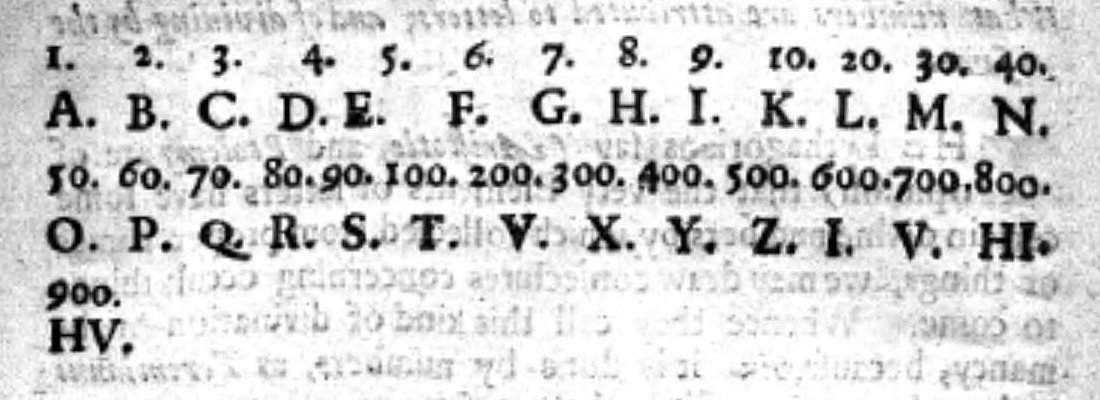|
Numerals
A numeral is a figure (symbol), word, or group of figures (symbols) or words denoting a number. It may refer to: * Numeral system used in mathematics * Numeral (linguistics), a part of speech denoting numbers (e.g. ''one'' and ''first'' in English) * Numerical digit, the glyphs used to represent numerals See also * Numerology Numerology (known before the 20th century as arithmancy) is the belief in an occult, divine or mystical relationship between a number and one or more coinciding events. It is also the study of the numerical value, via an alphanumeric system, ..., belief in a divine relationship between numbers and coinciding events {{disambiguation ... [...More Info...] [...Related Items...] OR: [Wikipedia] [Google] [Baidu] |
Numeral (linguistics)
In linguistics, a numeral in the broadest sense is a word or phrase that describes a numerical quantity. Some theories of grammar use the word "numeral" to refer to cardinal numbers that act as a determiner that specify the quantity of a noun, for example the "two" in "two hats". Some theories of grammar do not include determiners as a part of speech and consider "two" in this example to be an adjective. Some theories consider "numeral" to be a synonym for "number" and assign all numbers (including ordinal numbers like "first") to a part of speech called "numerals". Numerals in the broad sense can also be analyzed as a noun ("three is a small number"), as a pronoun ("the two went to town"), or for a small number of words as an adverb ("I rode the slide twice"). Numerals can express relationships like quantity (cardinal numbers), sequence (ordinal numbers), frequency (once, twice), and part (fraction). Identifying numerals Numerals may be attributive, as in ''two dogs'', or ... [...More Info...] [...Related Items...] OR: [Wikipedia] [Google] [Baidu] |
Numerical Digit
A numerical digit (often shortened to just digit) or numeral is a single symbol used alone (such as "1"), or in combinations (such as "15"), to represent numbers in positional notation, such as the common base 10. The name "digit" originates from the Latin ''digiti'' meaning fingers. For any numeral system with an integer base, the number of different digits required is the absolute value of the base. For example, decimal (base 10) requires ten digits (0 to 9), and binary (base 2) requires only two digits (0 and 1). Bases greater than 10 require more than 10 digits, for instance hexadecimal (base 16) requires 16 digits (usually 0 to 9 and A to F). Overview In a basic digital system, a numeral is a sequence of digits, which may be of arbitrary length. Each position in the sequence has a place value, and each digit has a value. The value of the numeral is computed by multiplying each digit in the sequence by its place value, and summing the results. Di ... [...More Info...] [...Related Items...] OR: [Wikipedia] [Google] [Baidu] |
Number
A number is a mathematical object used to count, measure, and label. The most basic examples are the natural numbers 1, 2, 3, 4, and so forth. Numbers can be represented in language with number words. More universally, individual numbers can be represented by symbols, called ''numerals''; for example, "5" is a numeral that represents the number five. As only a relatively small number of symbols can be memorized, basic numerals are commonly organized in a numeral system, which is an organized way to represent any number. The most common numeral system is the Hindu–Arabic numeral system, which allows for the representation of any Integer, non-negative integer using a combination of ten fundamental numeric symbols, called numerical digit, digits. In addition to their use in counting and measuring, numerals are often used for labels (as with telephone numbers), for ordering (as with serial numbers), and for codes (as with ISBNs). In common usage, a ''numeral'' is not clearly dist ... [...More Info...] [...Related Items...] OR: [Wikipedia] [Google] [Baidu] |
Numeral System
A numeral system is a writing system for expressing numbers; that is, a mathematical notation for representing numbers of a given set, using digits or other symbols in a consistent manner. The same sequence of symbols may represent different numbers in different numeral systems. For example, "11" represents the number ''eleven'' in the decimal or base-10 numeral system (today, the most common system globally), the number ''three'' in the binary or base-2 numeral system (used in modern computers), and the number ''two'' in the unary numeral system (used in tallying scores). The number the numeral represents is called its ''value''. Additionally, not all number systems can represent the same set of numbers; for example, Roman, Greek, and Egyptian numerals don't have a representation of the number zero. Ideally, a numeral system will: *Represent a useful set of numbers (e.g. all integers, or rational numbers) *Give every number represented a unique representation (or a ... [...More Info...] [...Related Items...] OR: [Wikipedia] [Google] [Baidu] |
Numerology
Numerology (known before the 20th century as arithmancy) is the belief in an occult, divine or mystical relationship between a number and one or more coinciding events. It is also the study of the numerical value, via an alphanumeric system, of the letters in words and names. When numerology is applied to a person's name, it is a form of onomancy. It is often associated with astrology and other divinatory arts. Number symbolism is an ancient and pervasive aspect of human thought, deeply intertwined with religion, philosophy, mysticism, and mathematics. Different cultures and traditions have assigned specific meanings to numbers, often linking them to divine principles, cosmic forces, or natural patterns. The term numerologist can be used for those who place faith in numerical patterns and draw inferences from them, even if those people do not practice traditional numerology. For example, in his 1997 book ''Numerology: Or What Pythagoras Wrought'' (), mathematician Underwo ... [...More Info...] [...Related Items...] OR: [Wikipedia] [Google] [Baidu] |
